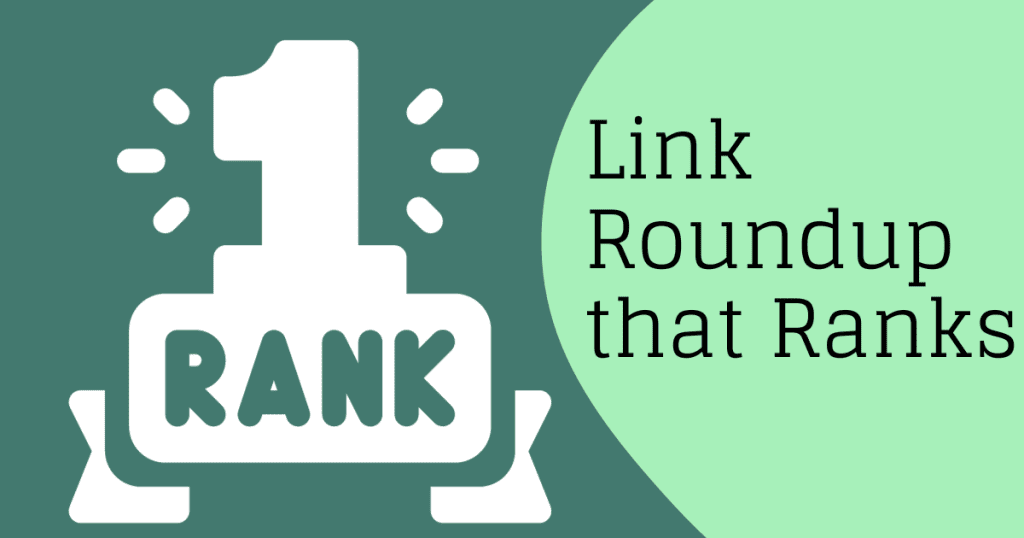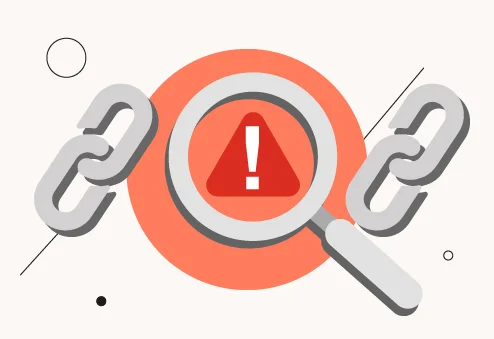Feeling overwhelmed by the endless sea of content about SEO best practices?
We’ve got you covered. Dive into our handpicked link roundup of the most insightful articles, research, and tips from top experts.
Discover hidden gems you won’t want to miss for taking your SEO game to the next level.
A link roundup essentially compiles a carefully curated list of links to high-quality articles and resources on a specific topic.
The benefits for readers are saving time, broadening knowledge, and staying in-the-know on need-to-know trends.
Types of Power-Packed SEO Link Roundups

Now that you understand the basic concept of link roundups, let’s delve into the diverse flavors they offer. Buckle up, content explorers, because we’re about to navigate three distinct types of link roundups:
1. Topic-Based Roundups
Imagine stumbling upon a curated map guiding you to hidden gems within a specific niche. That’s the beauty of topic-based roundups! These roundups zero in on a particular theme, like “mastering mindfulness” or “conquering content creation.” They’re like theme parks for your intellectual curiosity, offering a thrilling ride through the best resources on that chosen topic.
Whether you’re a productivity enthusiast seeking life hacks or a budding entrepreneur hungry for marketing magic, topic-based roundups cater to your specific interests, saving you precious time and serving up knowledge in bite-sized pieces.
2. Expert Roundups
Ever craved a front-row seat to a brainstorming session of industry leaders? Expert roundups bring that dream to life! These roundups gather insights and opinions from renowned professionals in a specific field. Imagine a symphony of thought leaders, each playing their instrument – the SEO guru sharing optimization secrets, the social media maestro revealing engagement strategies, and the design diva dishing out branding brilliance. It’s a knowledge concert where you get to soak in the expertise of the best in the business, learning from their diverse perspectives and actionable advice.
3. Curated Content Roundups
Picture a gallery showcasing the finest art pieces, each meticulously selected by a discerning curator. That’s the essence of curated content roundups. These roundups scour the web, handpicking high-quality articles, blog posts, infographics, and other valuable resources from various sources. They’re like digital libraries stocked with gems, meticulously categorized and presented in a way that’s both informative and visually appealing.
Whether you’re a news junkie seeking diverse viewpoints or a research rabbit chasing down reliable data, curated content roundups become your trusted guides, leading you to the most valuable and engaging content across the web.
Creating a Link Roundup that Ranks

Choosing the right topic: Selecting the optimal topic is key for engaging your target readership while also ranking high in SERPs. Research trending keywords and questions in your niche using tools like Google Trends, then choose a focused theme that taps into user intent.
Finding high-quality content: Source respected, authoritative sites related to your topic when compiling links. Check that each article is timely, thoroughly researched, credible, and offers unique value. Refer to tools like BuzzSumo to discover the most shared and engaged content.
Curation and organization: Categorize links into logical sections or subtopics to aid scanning and consumption. For example, you could have intro overview links, followed by common issues, solutions, best practices etc. Break up walls of links with headers, relevant images, or short paragraphs.
Writing compelling summaries: Craft a short 1-3 line snippet that summarizes the key takeaway or unique angle of each link. Ask or answer a specific question to entice clicks while establishing subject matter authority.
SEO optimization: Research target keyword variations and LSI keywords using Google Keyword Planner and organically work them into post copy where fitting, including meta descriptions. Insert relevant outbound links to reputable external resources to enrich content. Interlink to other related or useful posts on your blog to engage visitors.
How to Use Link Roundups

Link roundups are a powerful strategy in the world of content marketing and SEO, allowing you to build connections, drive traffic, and enhance your online presence. Here’s a step-by-step guide on how to make the most of link roundups:
1. Identifying Link Roundup Opportunities:
- Research: Explore your industry or niche to discover websites and bloggers who regularly publish link roundups.
- Relevance: Focus on those that align with your content and expertise.
2. Creating Link-Worthy Content:
- Quality is Key: Craft compelling and informative content that others would find valuable and want to include in their roundups.
- Visual Appeal: Include eye-catching visuals and multimedia elements to make your content stand out.
3. Building Relationships:
- Engage: Interact with bloggers and influencers in your industry through social media or by commenting on their blogs.
- Personalized Outreach: Reach out to them with personalized messages, expressing your appreciation for their work and sharing your relevant content.
4. Submission and Follow-Up:
- Submit Your Content: Once you’ve identified potential link roundup opportunities, submit your content for consideration.
- Follow Up: Politely follow up to ensure they received your submission and express your continued interest in being featured.
5. Monitoring Results:
- Track Referral Traffic: Use tools like Google Analytics to monitor the traffic coming from link roundups.
- Evaluate Impact: Assess the impact on your website’s visibility, audience engagement, and overall SEO.
6. Staying Consistent:
- Regularly Produce Quality Content: Maintain a consistent content creation schedule to increase your chances of being featured in future link roundups.
Examples of Successful Link Roundups:
One stellar example of a top-notch link roundup comes from Backlinko on the topic of keyword research. What makes this roundup excel is its smart curation of recent, authoritative content from the past year focused specifically on keyword tools and strategies.

The intro neatly sets user expectations, while scannable subheaders segment the links into logical sections like blog posts, videos, and tools. Brief 2-3 line summaries provide adequate context. For example, “An in-depth guide to using Google’s free keyword planner tool to generate targeted long tail keywords.”
From an SEO perspective, this roundup nails it by incorporating the primary keyword “keyword research” and variations naturally throughout. Additionally, each link has an optimized meta description that includes the keyword. Anchoring links like “related reading” link to other relevant evergreen posts on the site. An effective CTA concludes by driving visitors to subscribe for future updates.
Another gold star curation example is this recent link roundup from Ahrefs discussing technical SEO best practices. The content features and format follows a similarly strategic approach. Notably, they incorporate data like shares and average read time to validate the value of each included link even further.
The Final Word
Link roundups should now be your not-so-secret weapon for both enriching reader experience and climbing SERPs. The benefits for your audience include massive time savings, exposure to new perspectives, and amplifying knowledge on niche topics.
For you as the blogger, roundups drive qualified traffic through targeting specific keywords and questions. Plus, they establish subject matter expertise and relationships with industry influencers.
FAQs
Q1: What is a link roundup?
A link roundup is a curated list of valuable and relevant content from various sources, typically compiled by bloggers, influencers, or websites. It serves as a convenient resource for readers, offering a collection of top-notch content on a specific topic.
Q2: How can I find link roundup opportunities in my industry?
Research your industry or niche to discover websites, blogs, or influencers that regularly publish link roundups. Look for those that align with your content and expertise.
Q3: What makes content link-worthy for roundups?
Link-worthy content is typically high-quality, informative, and visually appealing. Create content that stands out and provides value to readers. Including multimedia elements can also enhance its appeal.
Q4: How do I submit my content for consideration in a link roundup?
Once you’ve identified potential opportunities, submit your content by reaching out to the curator. Personalize your outreach, express your appreciation for their work, and provide a brief overview of your relevant content.
Q5: How can I build relationships with bloggers and influencers for link roundups?
Engage with them on social media, comment on their blogs, and share their content. Establishing a genuine connection can increase the likelihood of your content being considered for link roundups.
Q6: How often should I produce content to increase my chances of being featured in link roundups?
Consistency is key. Maintain a regular content creation schedule to increase your visibility and chances of being featured in future link roundups.
Q7: Can link roundups help with SEO?
Yes, link roundups can positively impact SEO by generating backlinks to your content, increasing website visibility, and enhancing your online authority within your industry.





